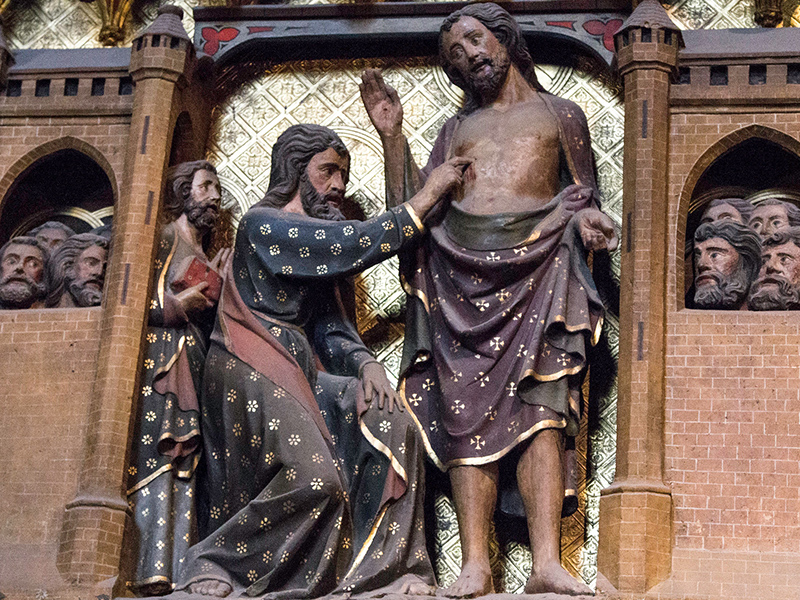
The Challenge of Mercy
Second Sunday of Easter (Divine Mercy) | Fr Leo Edgar sees Christ’s resurrection to be a sign of God’s infinite mercy.
When we hear St Peter’s letter this Sunday, written such a long time ago, are we surprised at the relevance that it still has for ourselves?
In all probability, Peter wrote to the early Jewish-Christians in the ‘diaspora’ regions of present-day Turkey of the need to recognise the importance of Christ’s resurrection on each of their lives. “God, in his great mercy, has given us new birth as his sons (and daughters) . . . so that we have a sure hope and promise of an inheritance that can never fade away” (1 Peter 1:9).
Being able to relate the relevance of the risen Christ to one’s own existence is essential to an understanding of one’s own mortality, as it brings into focus the life/death importance of our human existence. “God created us to know him, love him, and serve him”, as the old Catechism told us.
Trying to imagine the effect that Peter’s words must have had on the readers of his first letter, gives us an opportunity to recognise how important it was that the Apostles, and Peter in particular, understood that the people to whom he was writing, had never seen Jesus, and yet loved him!
This aspect of our Christian faith is important for us too. We also have not seen Jesus, as the Apostles had seen him, yet can be “filled with a joy so glorious that it cannot be described”, as Peter writes.
In John’s gospel (20:19) he too describes the joy that filled the disciples when they saw the risen Lord soon after his resurrection from death, tinged with the doubt expressed by Thomas, who was absent when Jesus appeared to them the first time. If our faith were to depend on seeing Christ, how difficult it would be for us. But is our faith not that much stronger, precisely because we have not yet seen him, but still believe?
Christ’s resurrection must be for us a sign of God’s infinite mercy. The promise of ‘new birth’ is the fulfilment of Christ’s resurrection, for just as he rose from the dead and appeared to Mary Magdalen and the other women, so he has given us a promise that will justify our faith in him. We do not need to doubt, as Thomas did; but we can learn from Thomas’s profession of faith when he declares, “My Lord and my God”, even though we have yet to see him face to face.
Faith, hope, and love can go hand in hand. We love Jesus because we have trust in him. Our love is a witness to his mercy. Sadly, the world in which we live lacks trust at so many levels, and without mutual trust the Church cannot easily spread the good news as Christ intended, when he gave the gift of the Holy Spirit to the Apostles. Easter (as well as Pentecost) is a time for being open to the coming of the Spirit into our lives, and a willingness to share our faith, love, and trust with others. It requires courage to do this and a willingness to allow the Holy Spirit to work in us.
As we prepare to move into the post-Easter period on this Sunday of Divine Mercy, we cannot ignore, surely, the words of Pope Francis when he writes, “following Jesus means learning to come out of ourselves in order to go to meet others, to go towards the outskirts of existence, to be the first to take a step towards our brothers and sisters, especially those who are most distant, those who are forgotten, those who are in most need of understanding, comfort and help. There is such a great need to bring the living presence of Jesus, merciful and full of love!” Who can afford to be cautious in the face of such a challenge?
Each day brings a fresh challenge to our lives as Christians. Each day those most in need of the risen Lord call out in need of spiritual support; those who have not yet seen but are trying to believe. Do we hear their call?
Acts 2:42-47 | 1 Peter 1:3-9 | John 20:19-31
Photograph by Fr Lawrence Lew OP of the Divine Mercy Shrine in Baltimore, MD.


